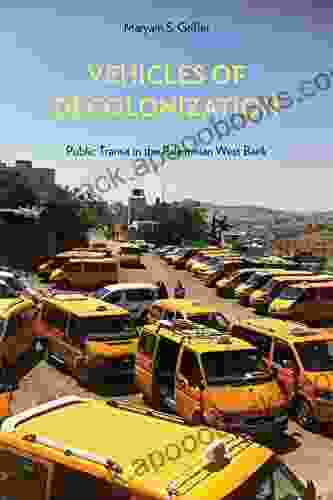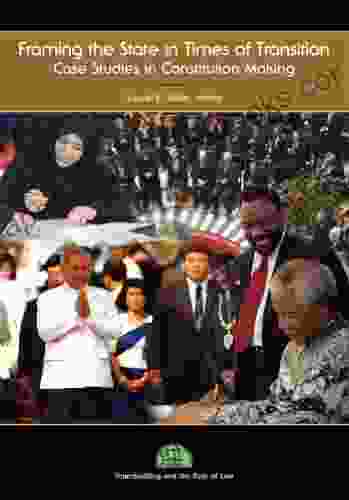Public Transit in the Palestinian West Bank: A Critical Exploration of Race, Indigeneity, and the Politics of Mobility

The Palestinian West Bank, a territory occupied by Israel since the 1967 Six-Day War, has witnessed a complex and contentious history of transportation and mobility. The Israeli occupation has imposed significant restrictions on the movement of Palestinians, particularly through the construction of checkpoints, barriers, and segregated road networks. These measures have not only hindered economic and social development but also have had profound implications for the daily lives of Palestinians.
This article delves into the intricate landscape of public transit in the Palestinian West Bank, exploring the ways in which race, indigeneity, and the politics of mobility intersect to shape the experiences of Palestinians. Drawing upon critical race theory and indigenous studies, the article argues that the Israeli occupation has created a system of racialized mobility that privileges Israeli settlers while disempowering and marginalizing Palestinians.
5 out of 5
| Language | : | English |
| File size | : | 34366 KB |
| Text-to-Speech | : | Enabled |
| Screen Reader | : | Supported |
| Enhanced typesetting | : | Enabled |
| Word Wise | : | Enabled |
| Print length | : | 223 pages |
Historical Background
Prior to the Israeli occupation, the West Bank had a relatively well-developed public transportation system that connected its major cities and villages. However, after 1967, Israel began to implement a series of policies that restricted Palestinian movement and curtailed the operation of public transit services. These measures included the closure of roads, the imposition of checkpoints, and the confiscation of vehicles. As a result, the Palestinian transportation system was fragmented and disrupted, making it difficult for Palestinians to travel within the West Bank and to neighboring regions.
In the 1980s, the Israeli military began to establish a network of settlements in the West Bank, which further exacerbated the restrictions on Palestinian mobility. The settlements were often located on strategic hillsides and along major roads, effectively cutting off Palestinian communities from each other. In addition, the Israeli government allocated significant resources to the development of infrastructure and transportation services within the settlements, while neglecting Palestinian areas. This disparity in investment created a two-tiered system of mobility that favored Israeli settlers over Palestinians.
Racialized Mobility
Critical race theory provides a framework for understanding the ways in which race and racism shape the distribution of power and resources in society. In the context of the Palestinian West Bank, racialized mobility refers to the system of mobility that privileges Israeli settlers while disempowering and marginalizing Palestinians. This system is based on the Israeli occupation's racialized hierarchy, which positions Israeli settlers as the dominant group and Palestinians as the subordinate group.
The Israeli occupation has created a series of physical and legal barriers that restrict Palestinian movement. These barriers include checkpoints, roadblocks, and segregated road networks. Israeli settlers, on the other hand, are largely exempt from these restrictions and enjoy freedom of movement throughout the West Bank. This disparity in mobility is a manifestation of the racialized hierarchy that underpins the Israeli occupation.
Indigeneity and Displacement
Indigenous studies scholars have long argued that the displacement of indigenous peoples is a central feature of colonialism and imperialism. In the case of the Palestinian West Bank, the Israeli occupation has forcibly displaced hundreds of thousands of Palestinians from their homes and lands. This displacement has had a profound impact on Palestinian mobility, as many displaced Palestinians have been unable to return to their homes or to establish new lives elsewhere.
The Israeli occupation's policies of displacement have also targeted Palestinian transportation systems. The closure of roads, the confiscation of vehicles, and the destruction of infrastructure have made it difficult for Palestinians to travel within the West Bank and to access neighboring regions. This disruption of mobility has had a devastating impact on Palestinian economic and social development.
Resistance and Resilience
Despite the challenges they face, Palestinians have demonstrated remarkable resilience and resistance to the Israeli occupation's restrictions on mobility. They have developed creative ways to bypass checkpoints and roadblocks, and they have established alternative transportation systems that connect Palestinian communities. In addition, Palestinians have engaged in ongoing protests and campaigns to challenge the Israeli occupation's policies of racialized mobility.
These acts of resistance and resilience are a testament to the determination of Palestinians to overcome the challenges they face and to achieve their aspirations for freedom and self-determination. They also underscore the importance of mobility as a fundamental human right and a key factor in achieving social and economic development.
Public transit in the Palestinian West Bank is a complex and contentious issue that intersects with race, indigeneity, and the politics of mobility. The Israeli occupation has created a system of racialized mobility that privileges Israeli settlers while disempowering and marginalizing Palestinians. This system has had a profound impact on the daily lives of Palestinians and has hindered their economic and social development.
However, Palestinians have demonstrated remarkable resilience and resistance to the Israeli occupation's restrictions on mobility. They have developed creative ways to bypass checkpoints and roadblocks, and they have established alternative transportation systems that connect Palestinian communities. These acts of resistance and resilience are a testament to the determination of Palestinians to overcome the challenges they face and to achieve their aspirations for freedom and self-determination.
5 out of 5
| Language | : | English |
| File size | : | 34366 KB |
| Text-to-Speech | : | Enabled |
| Screen Reader | : | Supported |
| Enhanced typesetting | : | Enabled |
| Word Wise | : | Enabled |
| Print length | : | 223 pages |
Do you want to contribute by writing guest posts on this blog?
Please contact us and send us a resume of previous articles that you have written.
 Book
Book Novel
Novel Page
Page Chapter
Chapter Text
Text Story
Story Genre
Genre Reader
Reader Library
Library Paperback
Paperback E-book
E-book Magazine
Magazine Newspaper
Newspaper Paragraph
Paragraph Sentence
Sentence Bookmark
Bookmark Shelf
Shelf Glossary
Glossary Bibliography
Bibliography Foreword
Foreword Preface
Preface Synopsis
Synopsis Annotation
Annotation Footnote
Footnote Manuscript
Manuscript Scroll
Scroll Codex
Codex Tome
Tome Bestseller
Bestseller Classics
Classics Library card
Library card Narrative
Narrative Biography
Biography Autobiography
Autobiography Memoir
Memoir Reference
Reference Encyclopedia
Encyclopedia John F Kowal
John F Kowal Simon Critchley
Simon Critchley Jeffrey K Tulis
Jeffrey K Tulis Sylvia Foster
Sylvia Foster Jesse Bullington
Jesse Bullington Vidyan Ravinthiran
Vidyan Ravinthiran Jim Keith
Jim Keith Susie Johns
Susie Johns Jeff Kirkham
Jeff Kirkham Hunter S Thompson
Hunter S Thompson Joey Carney
Joey Carney T L Coston
T L Coston Jennifer Coken
Jennifer Coken Jen Limarzi
Jen Limarzi Jessie Wise
Jessie Wise Michelle R Dunlap
Michelle R Dunlap Jesse Thistle
Jesse Thistle Joanne W Golann
Joanne W Golann Jeffery H Haskell
Jeffery H Haskell Lady Mary Wortley Montagu
Lady Mary Wortley Montagu
Light bulbAdvertise smarter! Our strategic ad space ensures maximum exposure. Reserve your spot today!

 Kurt VonnegutUnlock the Enchanting World of Chemical Reactions with Kristi Lew's Essential...
Kurt VonnegutUnlock the Enchanting World of Chemical Reactions with Kristi Lew's Essential...
 Federico García LorcaThe Heartbeat of Speech-Language Pathology: A Comprehensive Guide to the...
Federico García LorcaThe Heartbeat of Speech-Language Pathology: A Comprehensive Guide to the... Ike BellFollow ·9.5k
Ike BellFollow ·9.5k Patrick RothfussFollow ·16.2k
Patrick RothfussFollow ·16.2k Maurice ParkerFollow ·9.6k
Maurice ParkerFollow ·9.6k Jackson HayesFollow ·8.4k
Jackson HayesFollow ·8.4k George Bernard ShawFollow ·9.7k
George Bernard ShawFollow ·9.7k Alvin BellFollow ·14.5k
Alvin BellFollow ·14.5k Nathan ReedFollow ·2.4k
Nathan ReedFollow ·2.4k Isaac MitchellFollow ·13.9k
Isaac MitchellFollow ·13.9k

 Preston Simmons
Preston SimmonsEmbark on a Literary Odyssey with "Walking on Water": A...
Prepare to be swept...
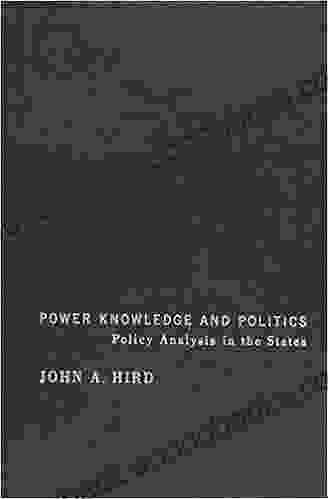
 Ernesto Sabato
Ernesto SabatoUnlocking Policy Analysis: Dive into the Intricacies of...
: The Realm of Policy...
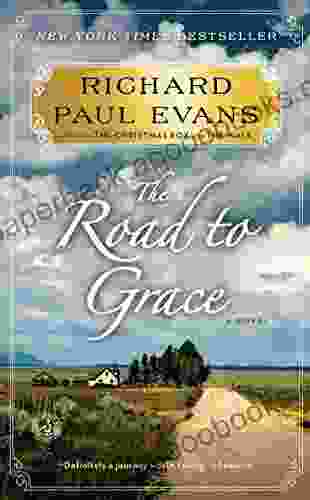
 Forrest Reed
Forrest ReedThe Road to Grace Walk: A Journey of Spiritual Growth and...
In the tapestry of life, we...
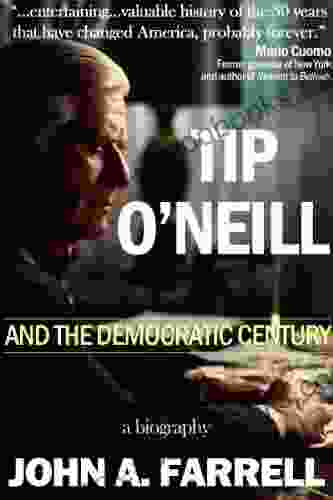
 Evan Simmons
Evan SimmonsTip Neill and the Democratic Century: A Political Odyssey...
The Rise of a Political Giant In the...

 Mark Mitchell
Mark MitchellUnwrap the Magic: A Review of Christmas Memory by Richard...
As the cold winter months draw near, and...

 Percy Bysshe Shelley
Percy Bysshe ShelleyBeyond the Veil: Delve into the Realm of Spirit with In...
Unveiling the Mysteries of the Unseen...
5 out of 5
| Language | : | English |
| File size | : | 34366 KB |
| Text-to-Speech | : | Enabled |
| Screen Reader | : | Supported |
| Enhanced typesetting | : | Enabled |
| Word Wise | : | Enabled |
| Print length | : | 223 pages |


